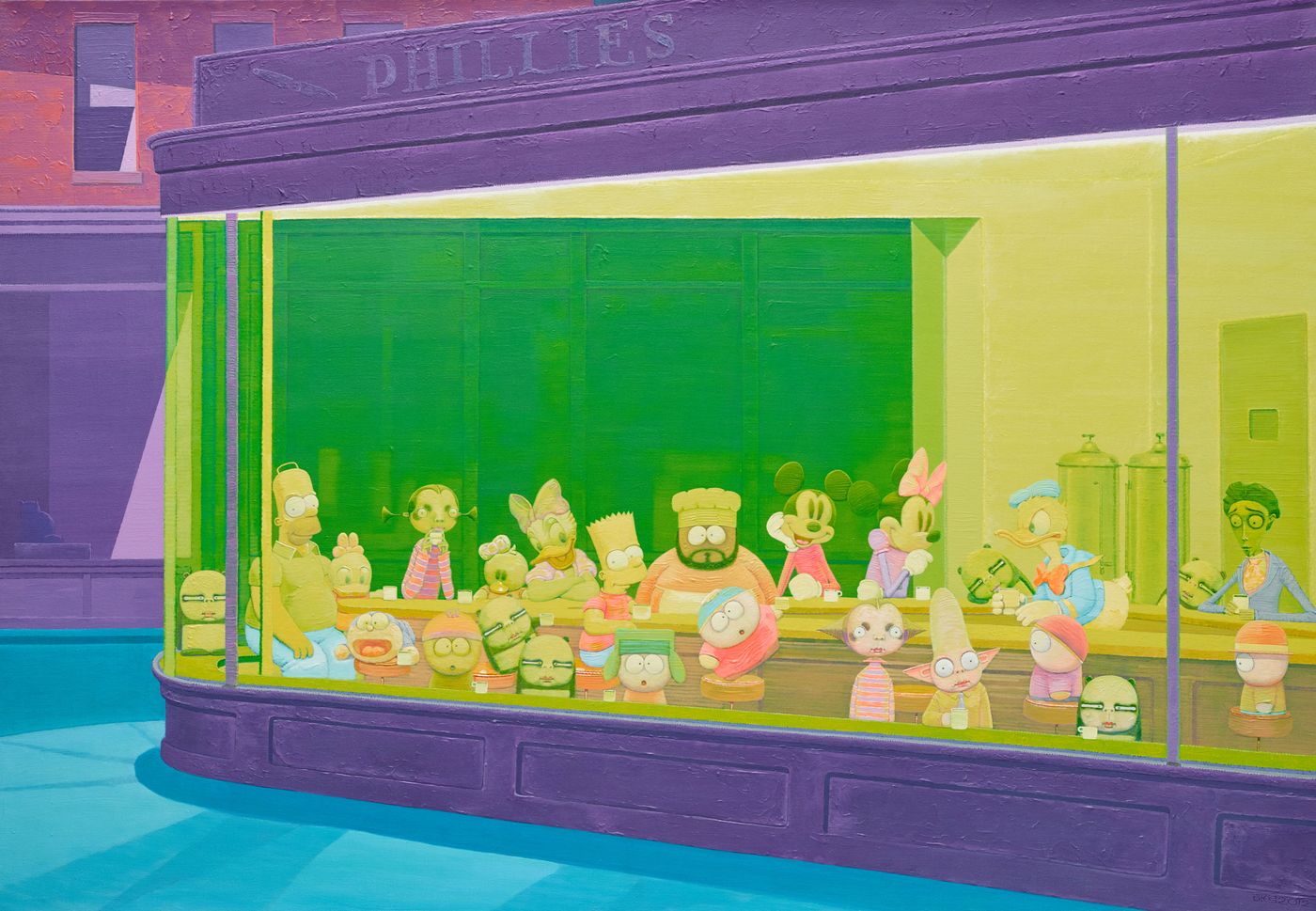
Zhang Gong's Surreal Cartoons Go Abstract
Words by Eric David
Location
New York City, New York, United States
Zhang Gong's Surreal Cartoons Go Abstract
Words by Eric David
New York City, New York, United States
New York City, New York, United States
Location
“The Watcher” at the Klein Sun Gallery in New York, is the latest solo exhibition from Chinese artist and animator Zhang Gong, and now his fourth with the gallery, featuring a body of work he has been developing since 2012. Known for his figurative style that mixes surrealism and pop culture and his use of emblematic characters from animated movies and cartoons, his latest show features three new series of paintings that push his figurative sensibilities into more abstract milieus.
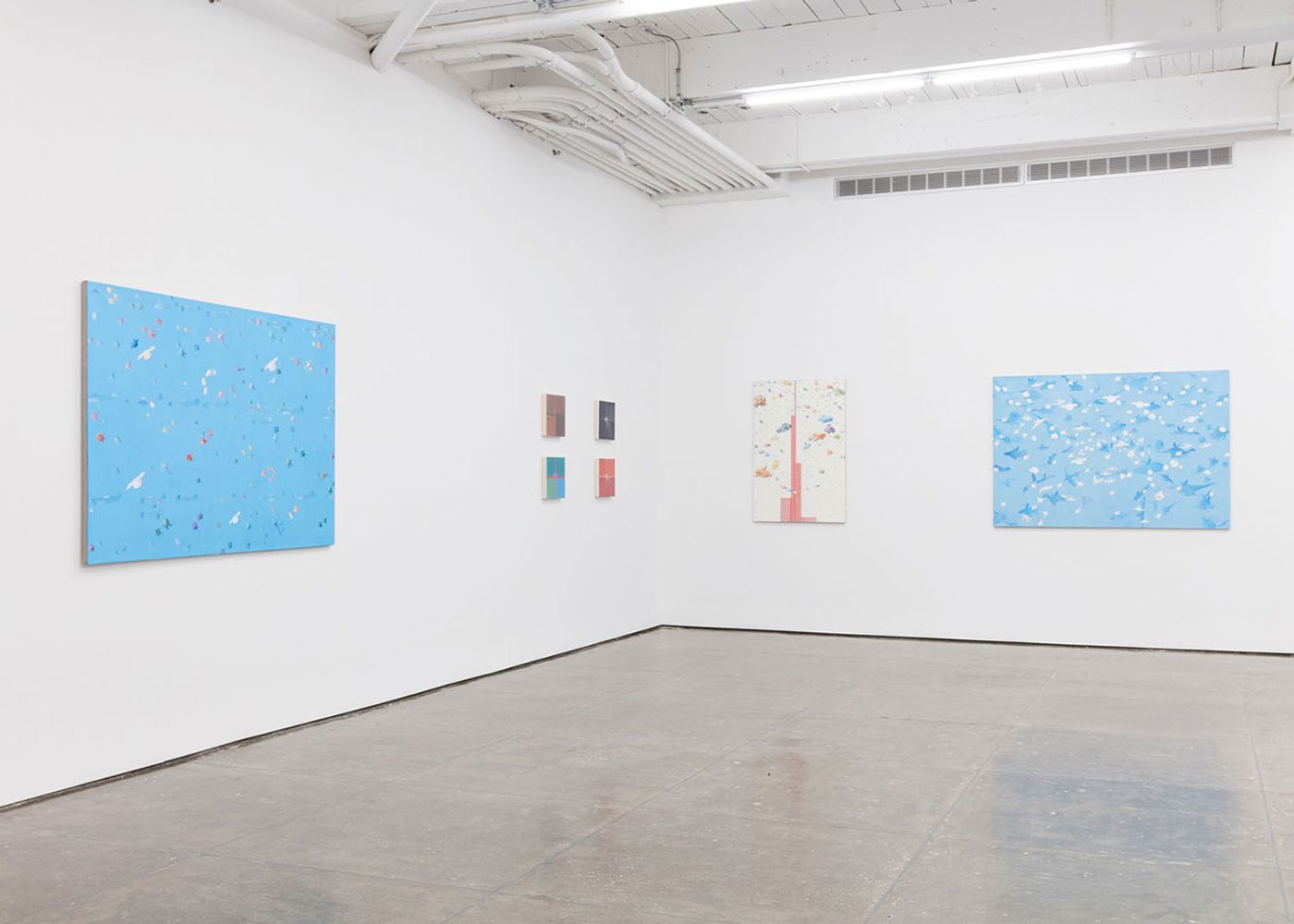
Zhang Gong: The Watcher, Exhibition view. Courtesy Klein Sun Gallery.
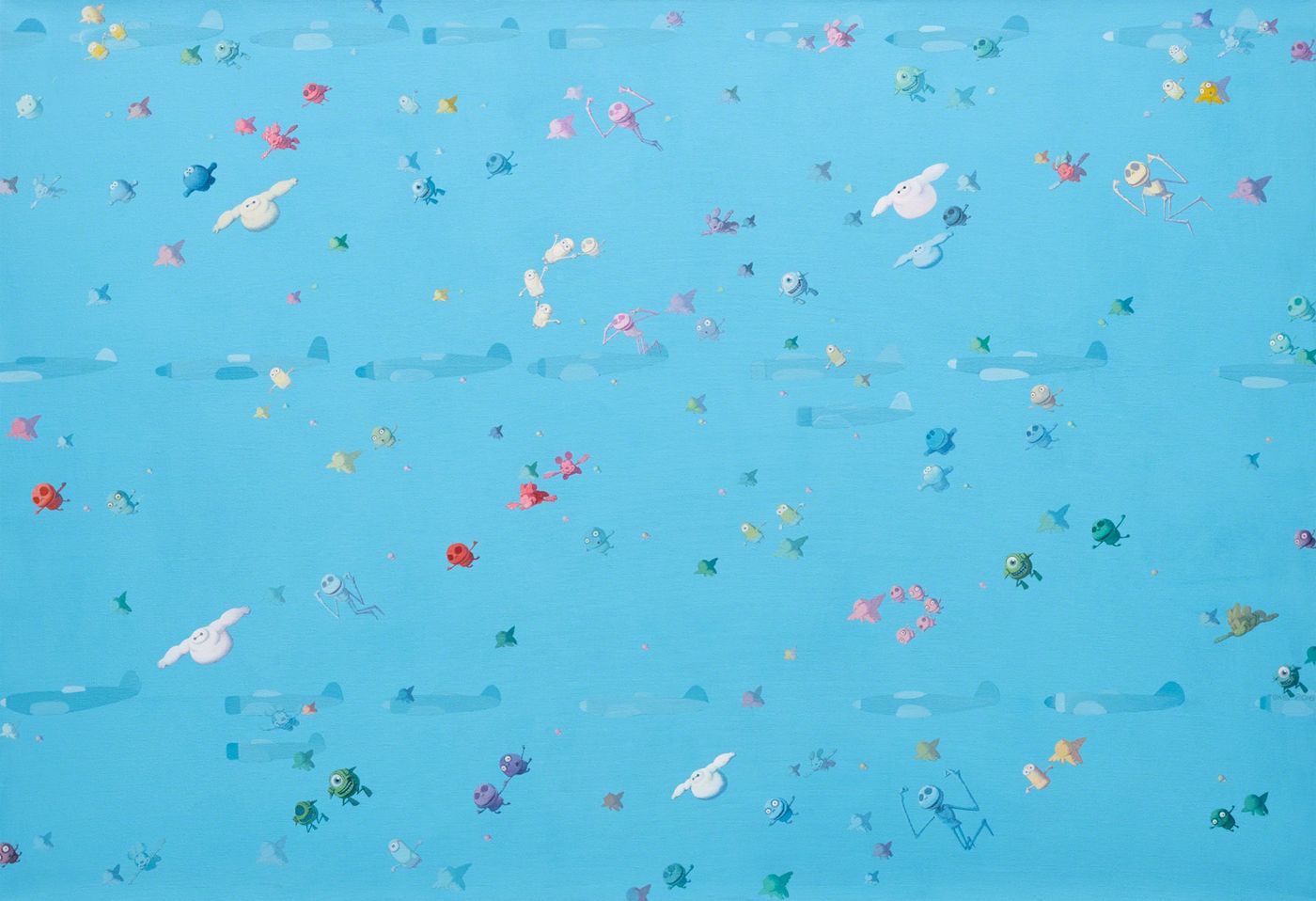
Zhang Gong, Night Away No.3, 2016. Acrylic on canvas 41 1/4 × 68 7/8 in (104.8 × 174.9 cm) Courtesy of Klein Sun Gallery and the artist, © Zhang Gong. Photo by Tim Schutsky.
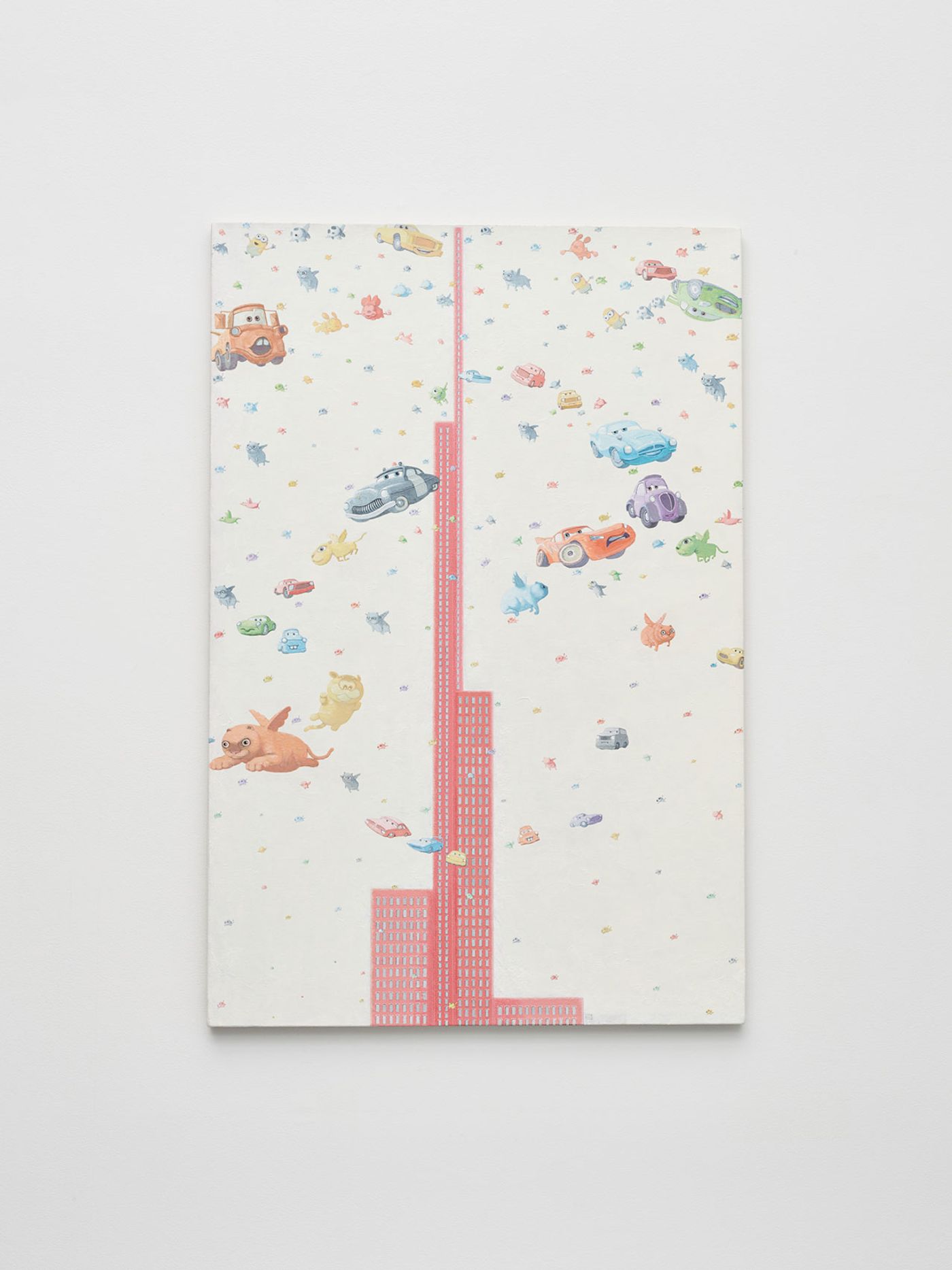
Zhang Gong, Flying Tigers, 2016. Acrylic on canvas, 47 1/4 x 31 1/2 inches (120 x 80 cm). Courtesy of Klein Sun Gallery and the artist, © Zhang Gong. Photo by Tim Schutsky.

Zhang Gong, Flight to the Void No. 2, 2015. Acrylic on canvas, in 4 parts each: 15 3/4 x 12 5/8 inches (40 x 32 cm). Courtesy of Klein Sun Gallery and the artist, © Zhang Gong. Photo by Tim Schutsky.
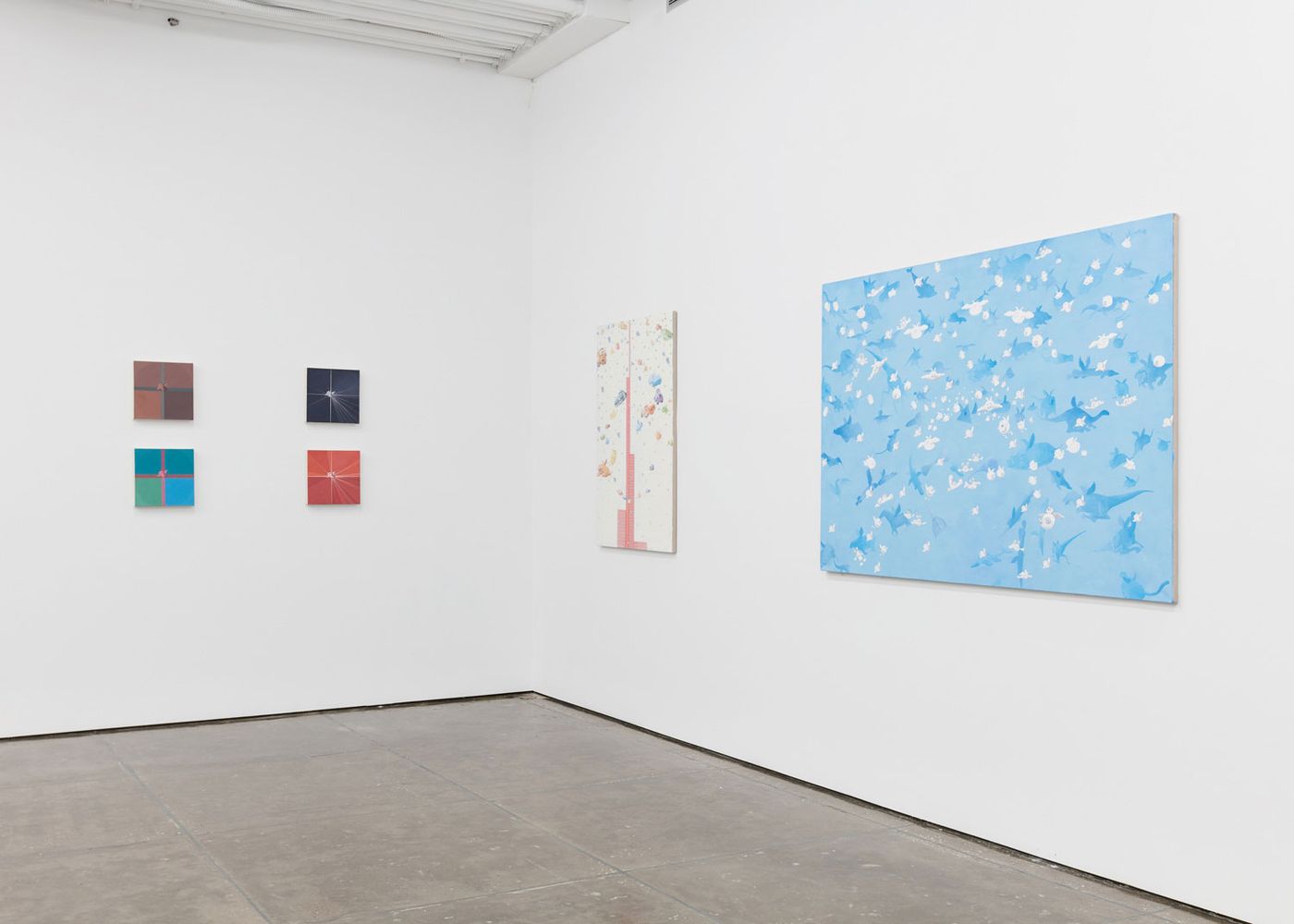
Zhang Gong: The Watcher, Exhibition view. Courtesy Klein Sun Gallery.
Zhang is best known for appropriating classic paintings such as George Seurat’s “Sunday Afternoon on the Island of La Grande Jatte” and Théodore Géricault’s “The raft of Medusa”, and replacing all the people within them with a motley crew of iconic, oddball characters, in an act of artistic iconoclasm or perhaps cultural continuity. In “Sister Pan’s Café” for example, which is included in this exhibition, he fills Edward Hopper’s “Nighthawks” diner with animated figures from, among other sources, South Park, Disney and The Simpsons, as well as several slit-eyed pandas—the artist’s own creation that makes frequent appearances in his work as an avatar for the human self. Despite the fact that Zhang has replaced Hopper’s somber tone and nod to film noir with a sense of playful goofiness and pop culture references, the original sense of urban loneliness and isolation has been preserved albeit as the kind now experienced as entertainment overload, courtesy of the internet and our ubiquitous gadgets.

Zhang Gong: The Watcher, Exhibition view. Courtesy Klein Sun Gallery.

Zhang Gong, Flight to the Void No. 6, 2015. Acrylic on canvas, 15 3/4 x 12 5/8 inches (40 x 32 cm). (One of three panels.) Courtesy of Klein Sun Gallery and the artist, © Zhang Gong. Photo by Tim Schutsky.

Zhang Gong, Flight to the Void No. 1, 2015. Acrylic on canvas, 15 3/4 x 12 5/8 inches (40 x 32 cm). (One of four panels.) Courtesy of Klein Sun Gallery and the artist, © Zhang Gong. Photo by Tim Schutsky.
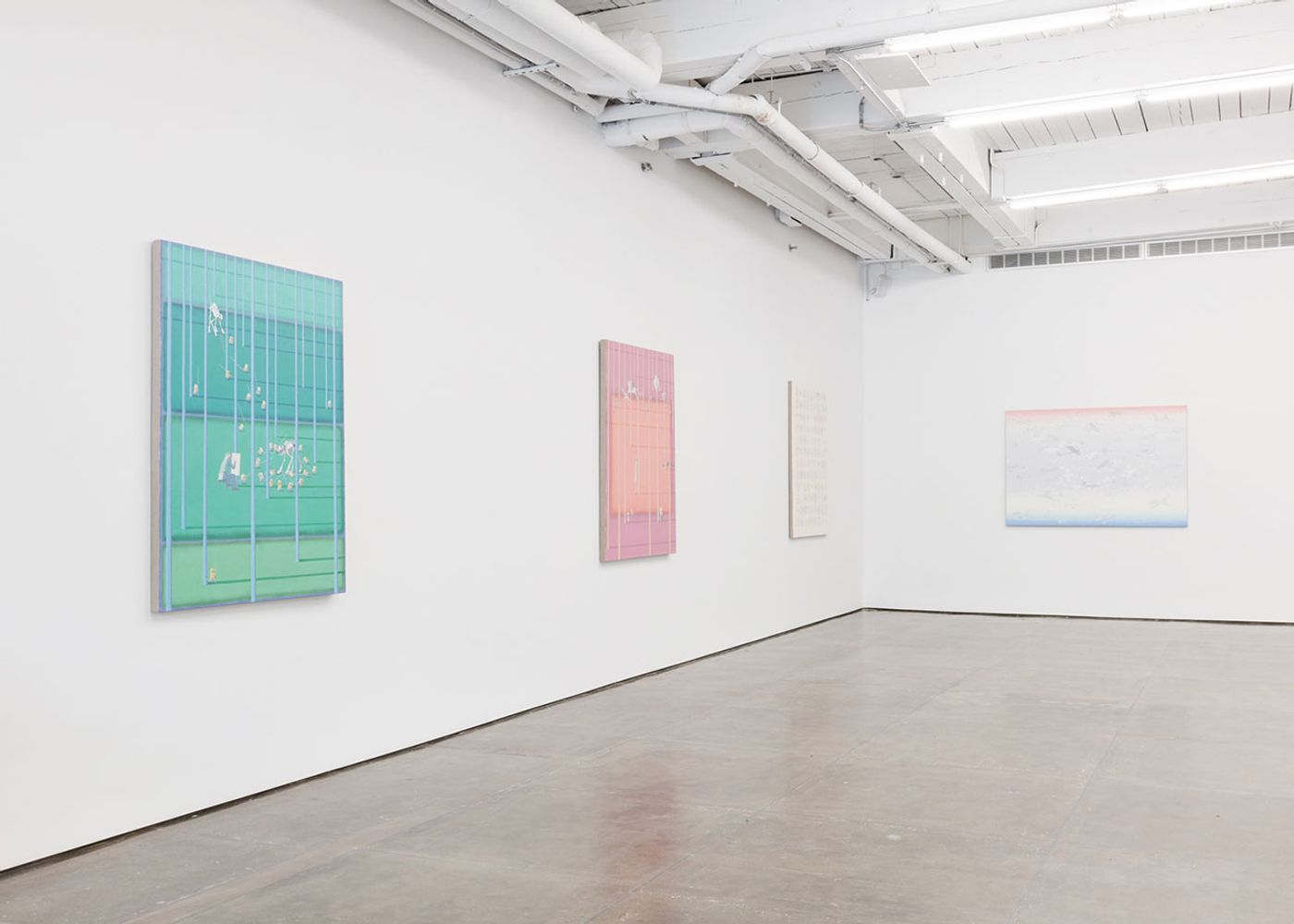
Zhang Gong: The Watcher, Exhibition view. Courtesy Klein Sun Gallery.
The theme of isolation is also explored in “The Watcher” series where Zhang paints a coterie of cartoon characters acting out several simultaneous narratives amidst a figurative forest that serves both as a stage for the mini dramas to unfold and as a grid that contains them. Here pastel colours and cartoon figures give a first impression of lightheartedness that on closer inspection however turns out to be rather darker with acts of aggression and despair. Similarly, the seemingly unrelated scenes become interconnected both by their common staging and by the mere act of watching them, hence the series' title. Meanwhile, for the “Dissolve the Night” series, he swaps Cartesian order for entropic disorder to create a series of paintings that feature swarms of cars, planes and cartoons, swirling like atomic particles or Petri dish microorganisms.
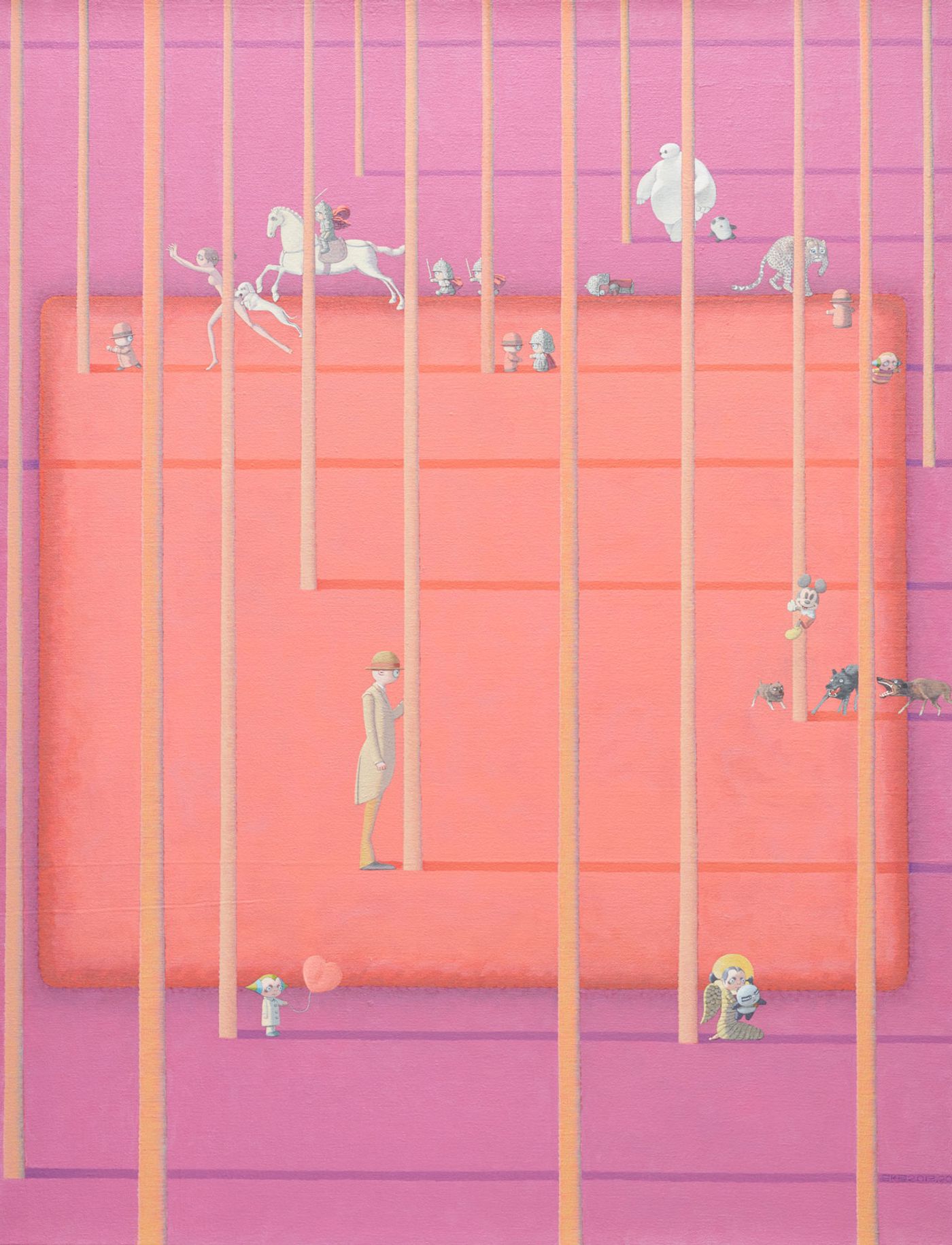
Zhang Gong, The Watcher No. 1, 2016. Acrylic on canvas, 57 1/8 x 44 1/8 inches (145 x 112 cm). Courtesy of Klein Sun Gallery and the artist, © Zhang Gong. Photo by Tim Schutsky.
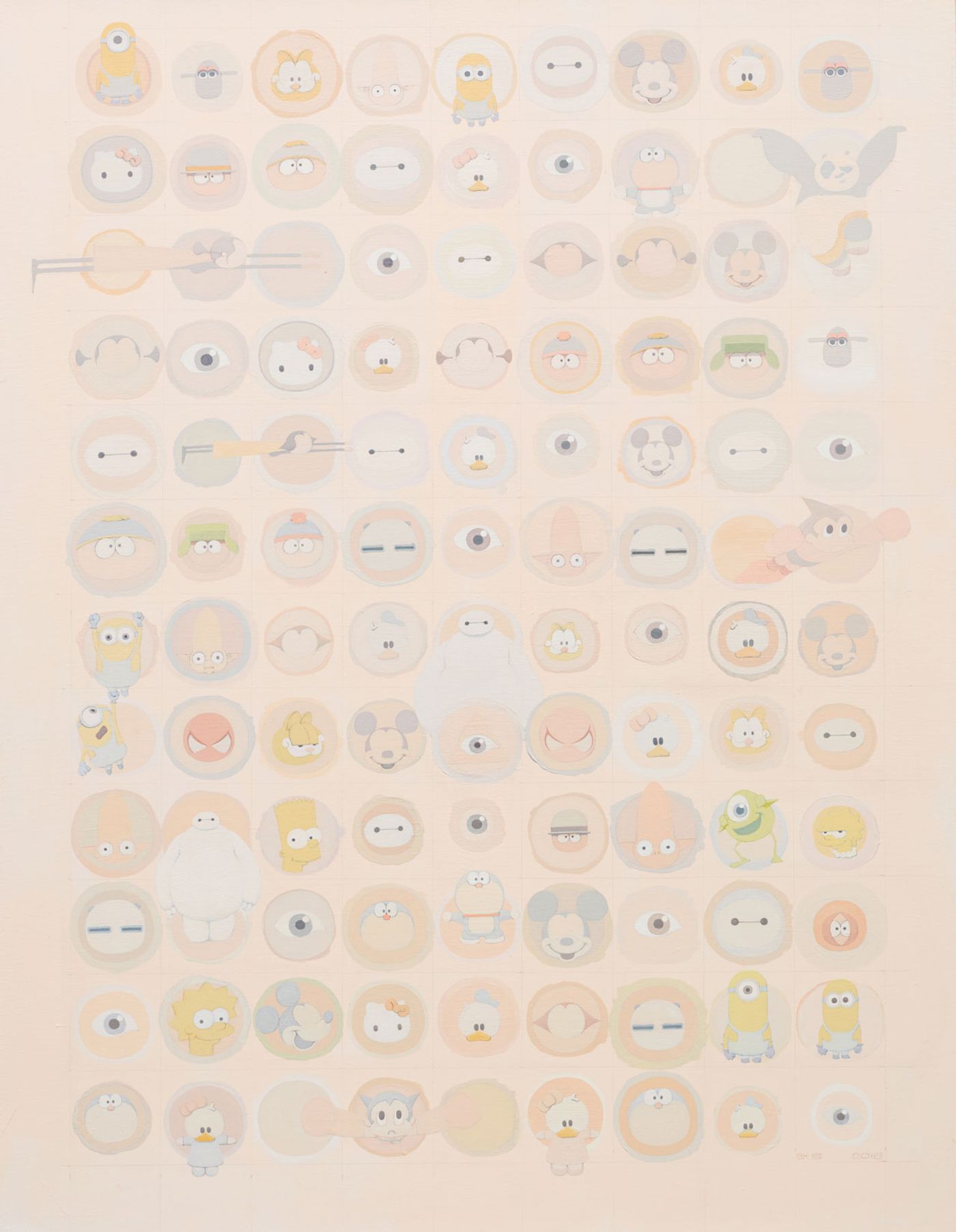
Zhang Gong, Lovely, 2016. Acrylic on canvas, 57 1/8 x 44 1/8 inches (145 x 122 cm). Courtesy of Klein Sun Gallery and the artist, © Zhang Gong. Photo by Tim Schutsky.
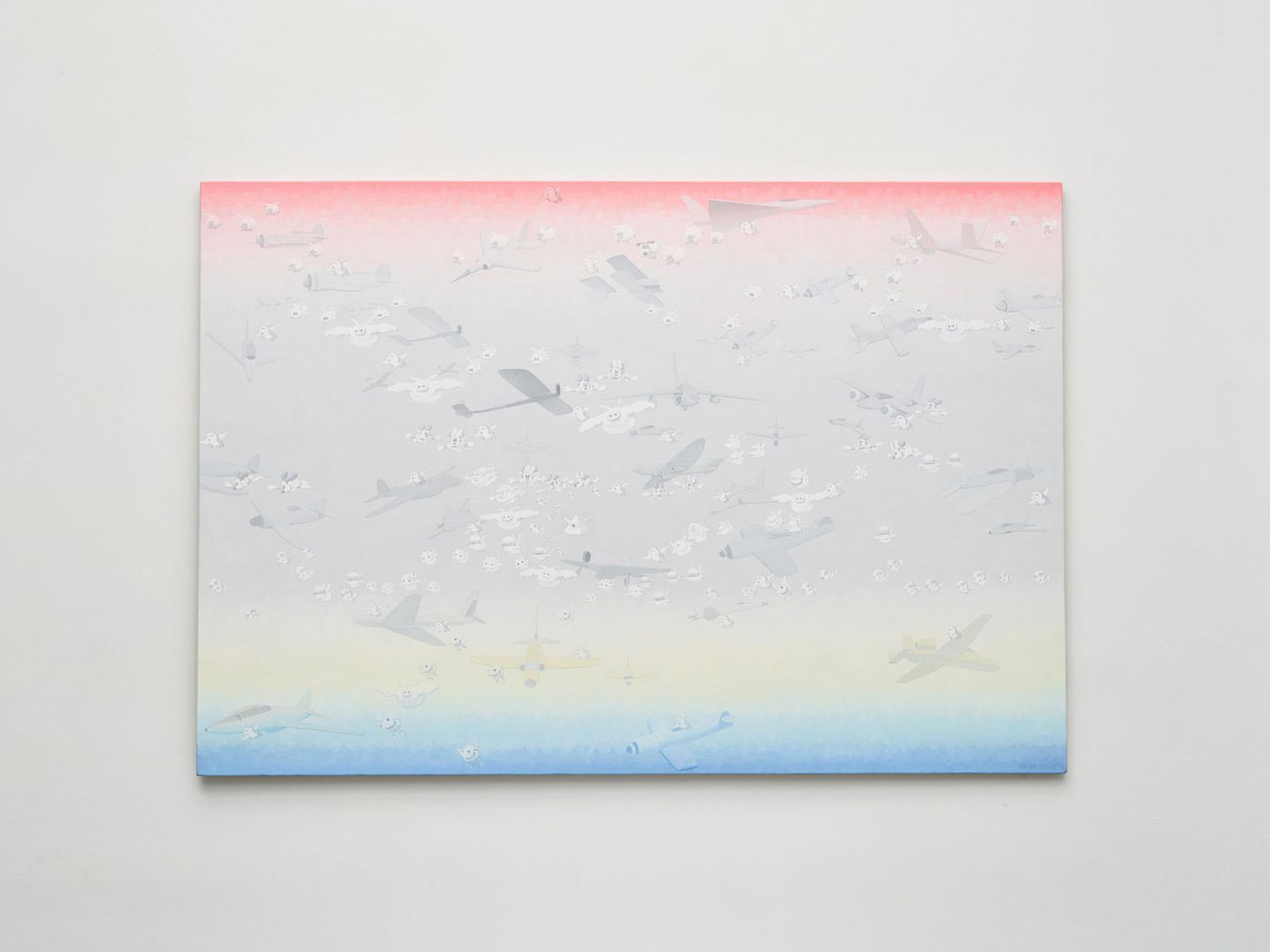
Zhang Gong, Night Away No. 2, 2016.
Acrylic on canvas, 47 1/4 x 68 7/8 inches (120 x 175 cm). Courtesy of Klein Sun Gallery and the artist, © Zhang Gong. Photo by Tim Schutsky.
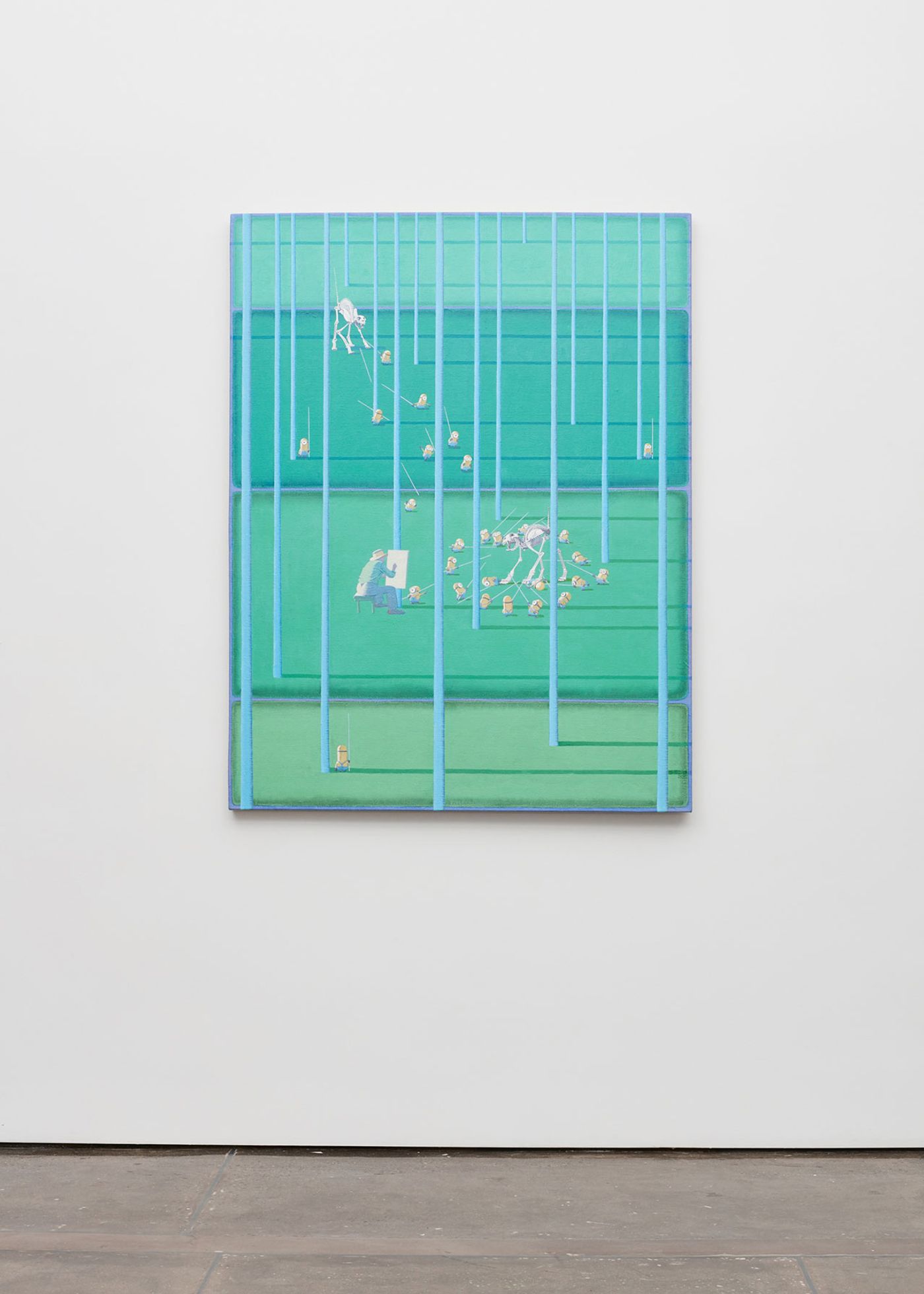
Zhang Gong: The Watcher, Exhibition view. Courtesy Klein Sun Gallery.
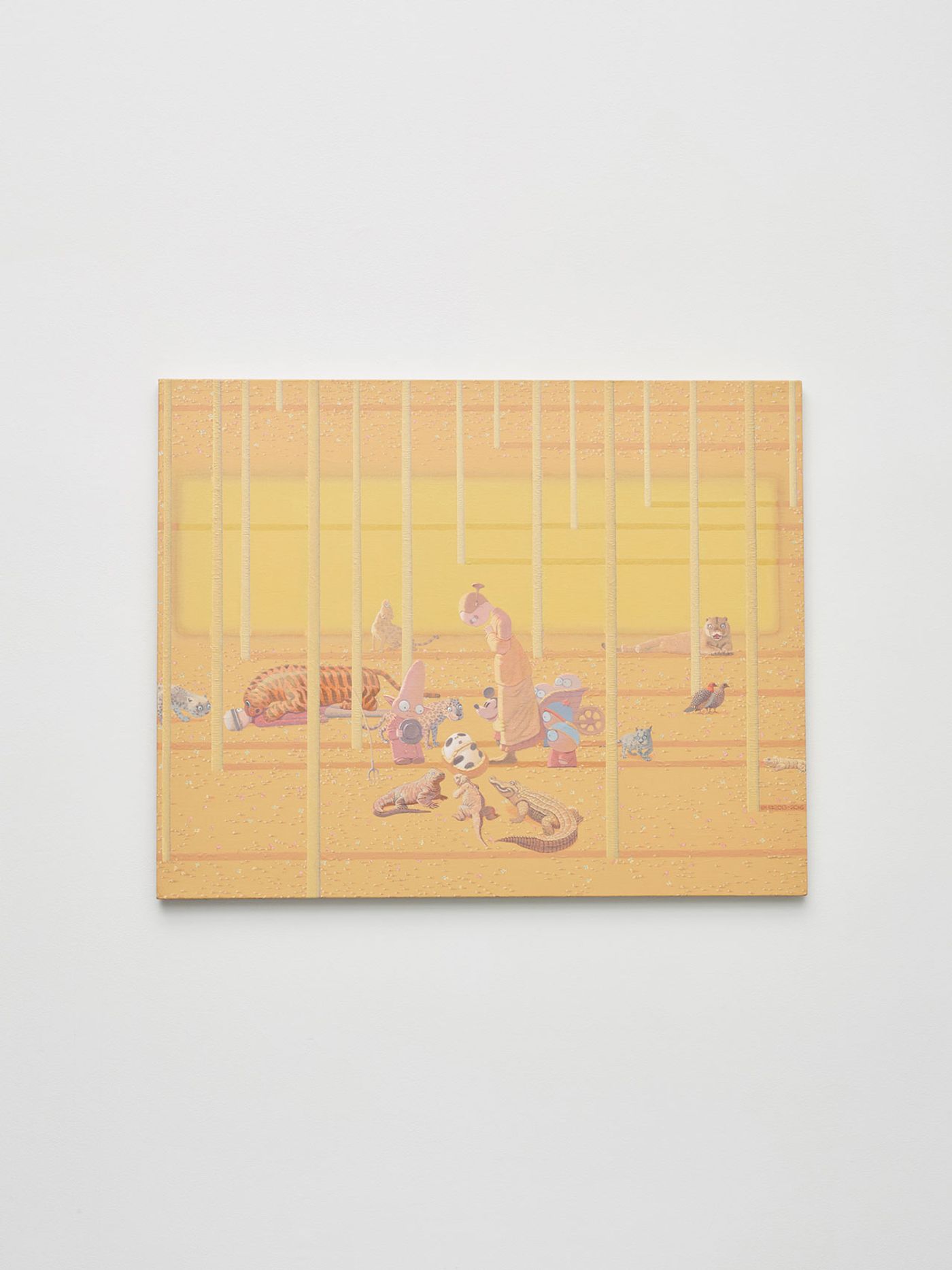
Zhang Gong, The Watcher No. 4, 2016. Acrylic on canvas, 31 1/2 x 39 3/5 inches (80 x 100 cm). Courtesy of Klein Sun Gallery and the artist, © Zhang Gong. Photo by Tim Schutsky.
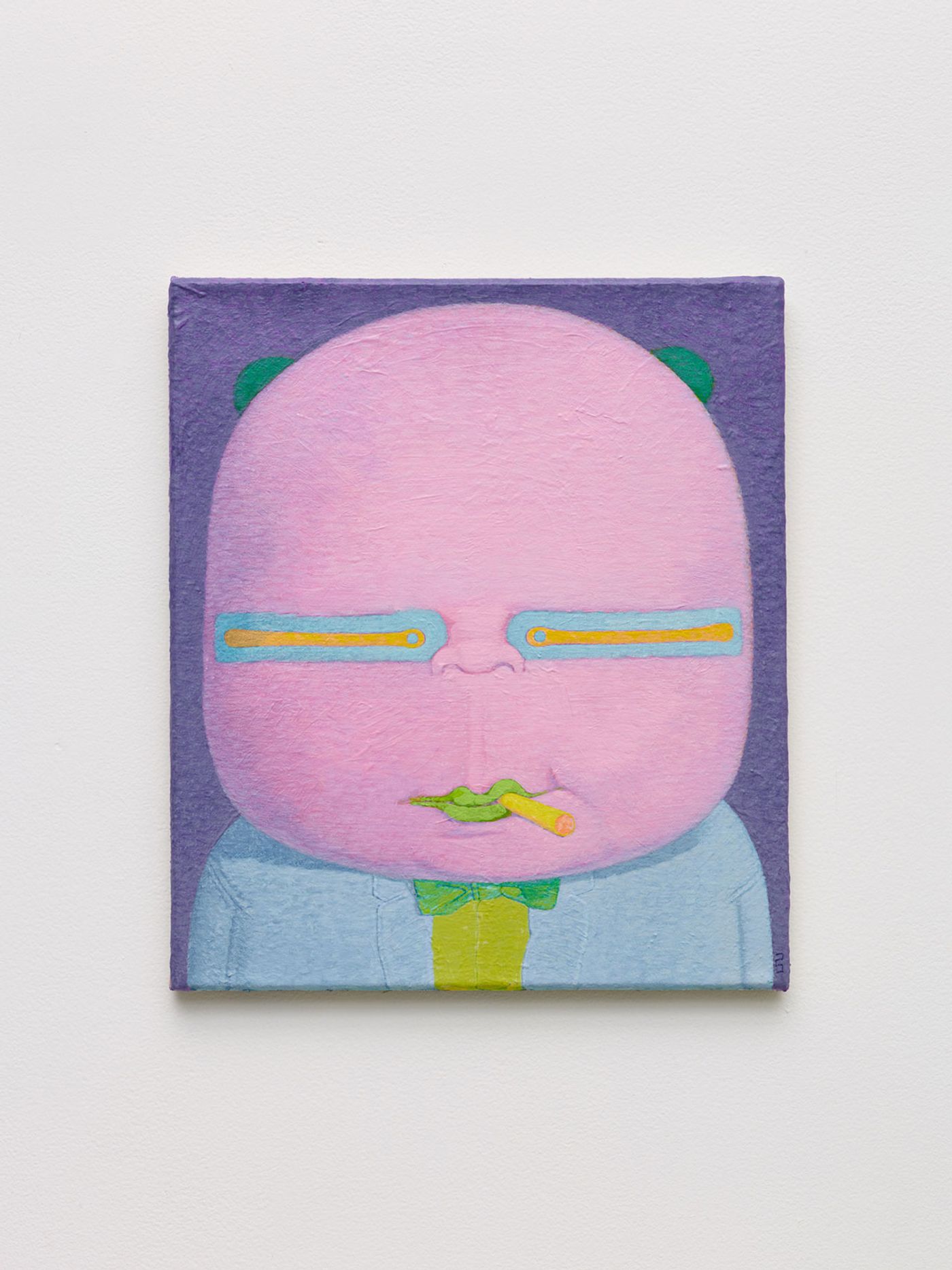
Zhang Gong, Mr. Panda, 2015. Acrylic on canvas, 16 1/8 x 13 3/4 inches (41 x 35 cm). Courtesy of Klein Sun Gallery and the artist, © Zhang Gong. Photo by Tim Schutsky.
Finally, in the “Flying to the Void” series, Zhang goes for a more minimal approach with simple geometric shapes in luminous hues that form a cross in the middle over which we see a hovering flying panda. This set up can be interpreted in many ways: as a religious or national symbol (flag), a crossroads or even as the crosshairs of life, whereupon man is trying to find his bearings. At the same time, the panda’s central position yet minimal size and indistinct colour may allude to the paradox of existence, to explain that however insignificant in the grand scheme of things our individual life may be, we are still its protagonists.
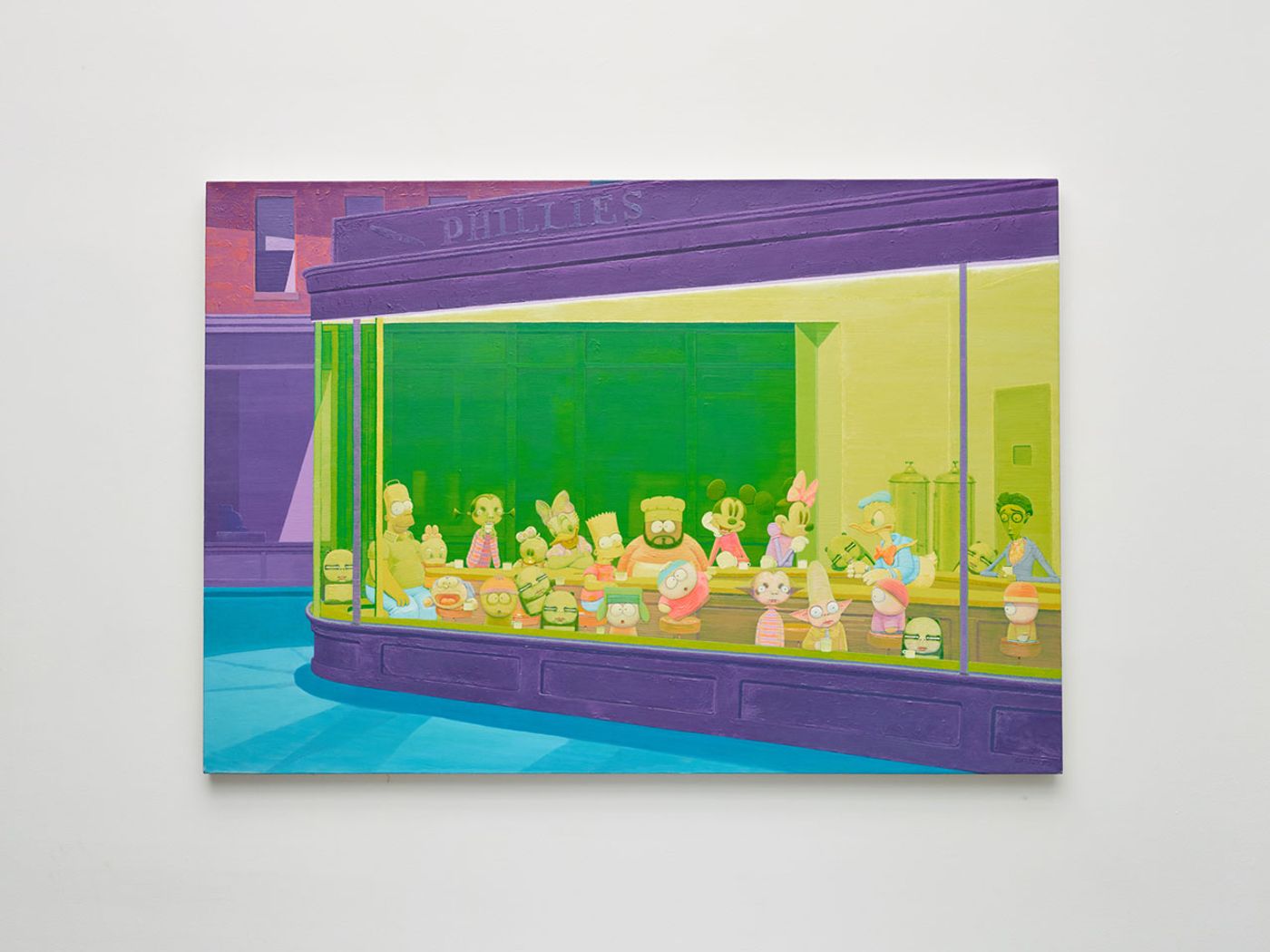
Zhang Gong, Sister Pan's Cafe, 2012. Acrylic on canvas, 47 1/4 x 68 7/8 inches (120 x 175 cm). Courtesy of Klein Sun Gallery and the artist, © Zhang Gong. Photo by Tim Schutsky.
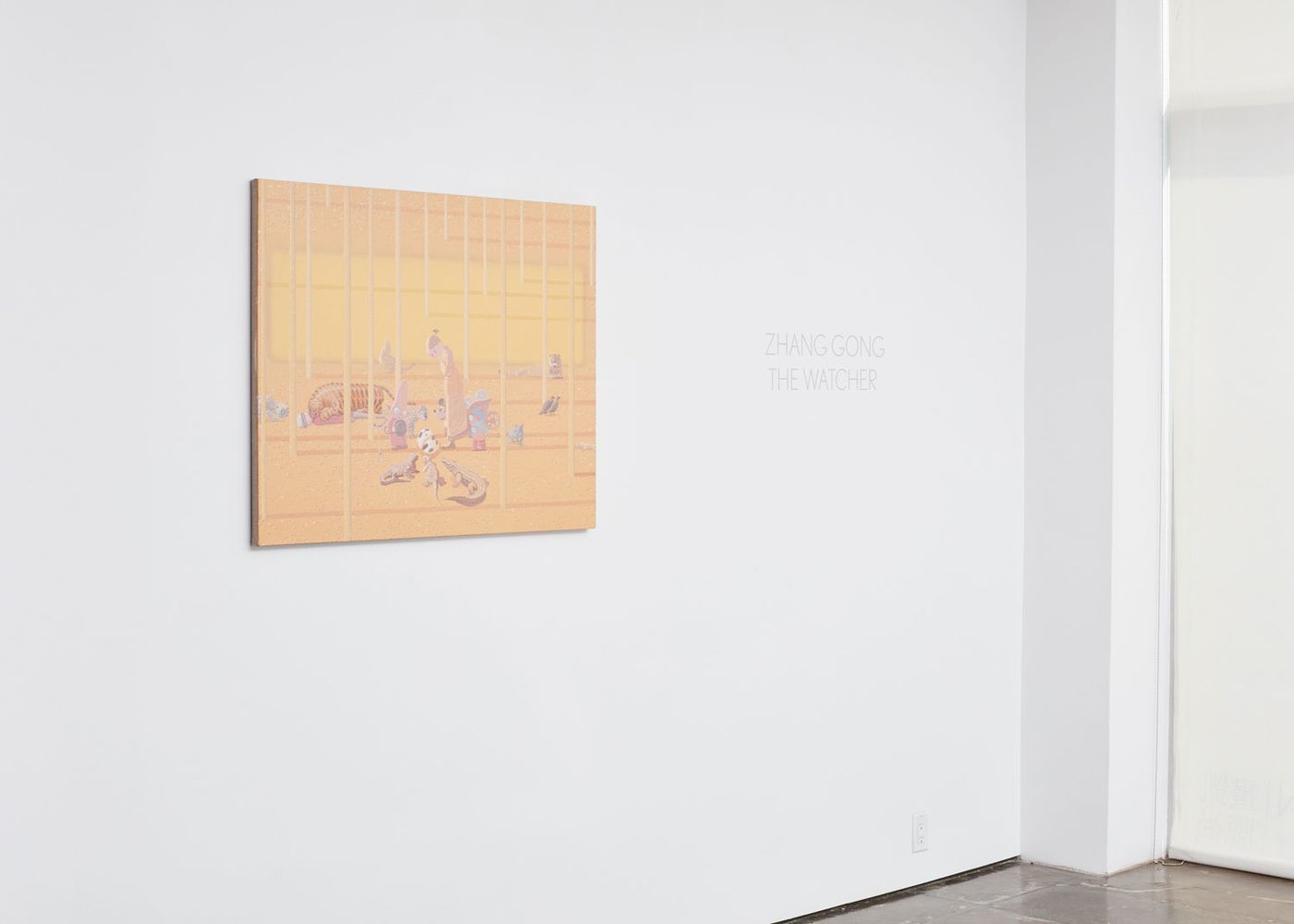
Zhang Gong: The Watcher, Exhibition view. Courtesy Klein Sun Gallery.
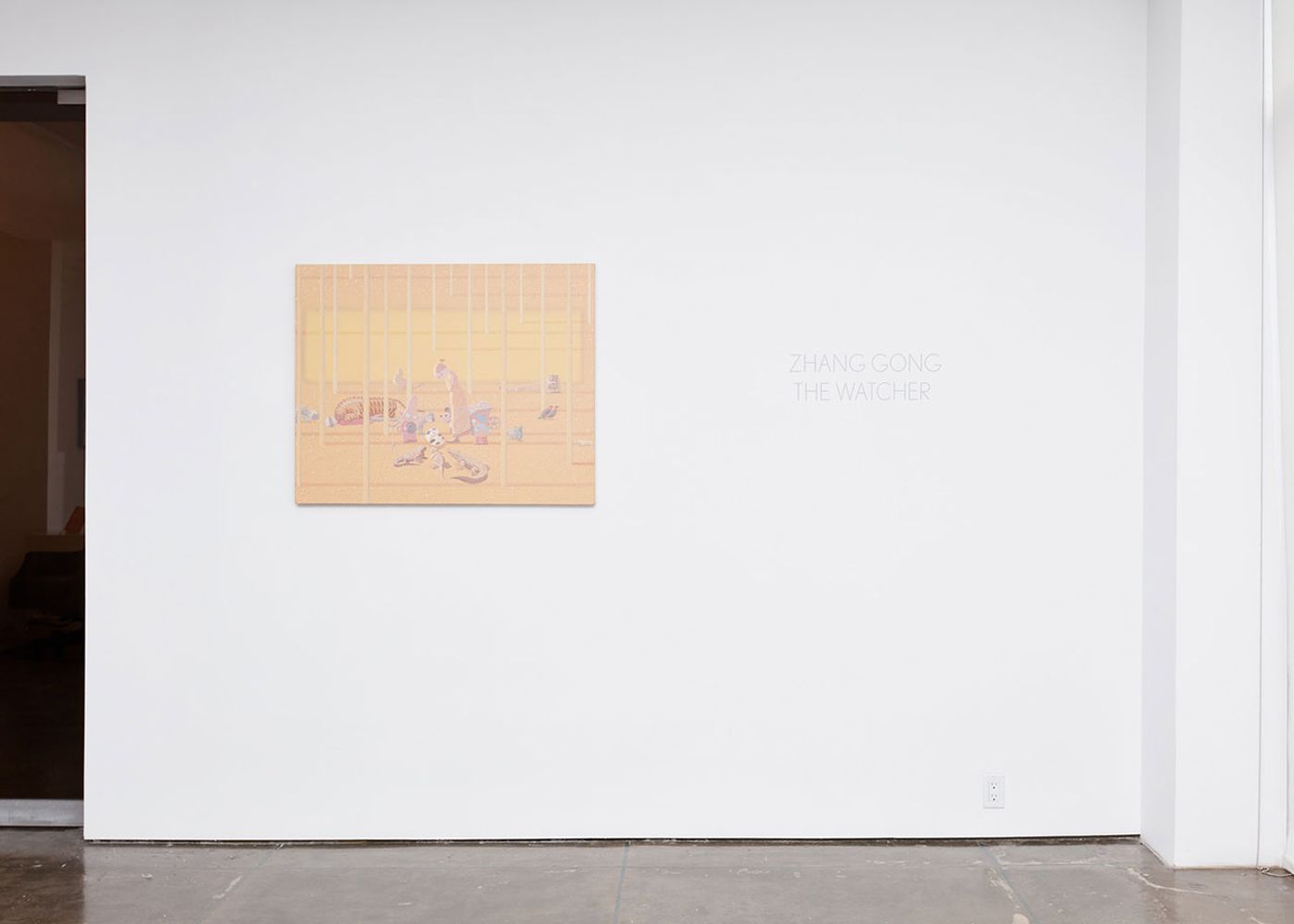
Zhang Gong: The Watcher, Exhibition view. Courtesy Klein Sun Gallery.